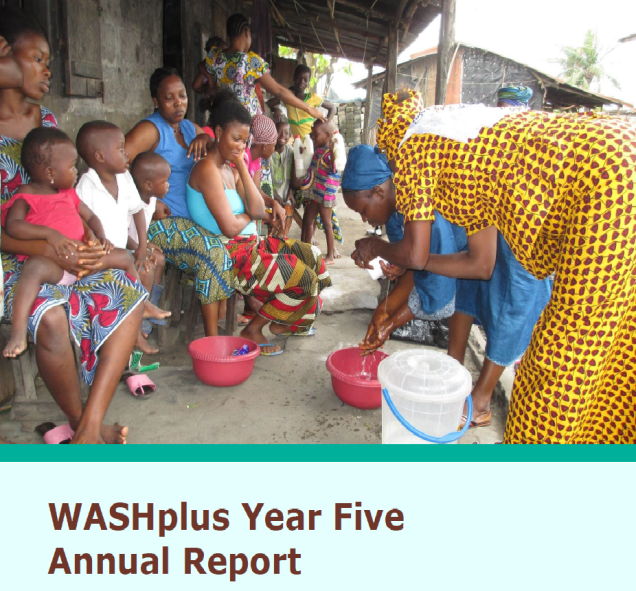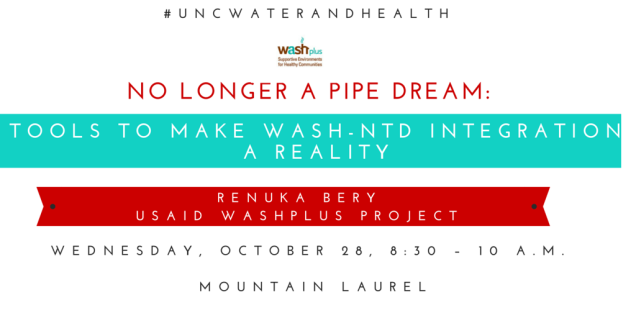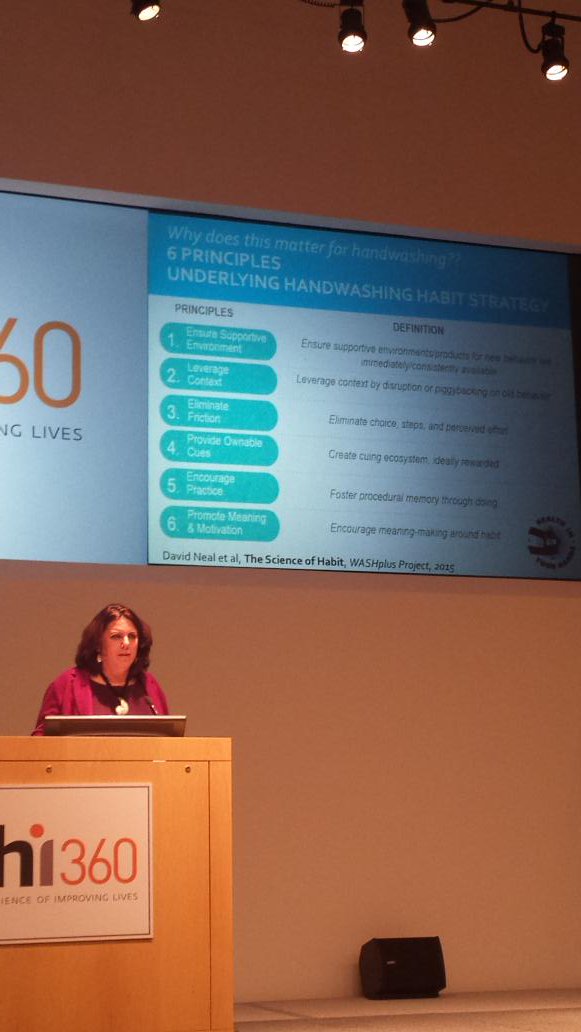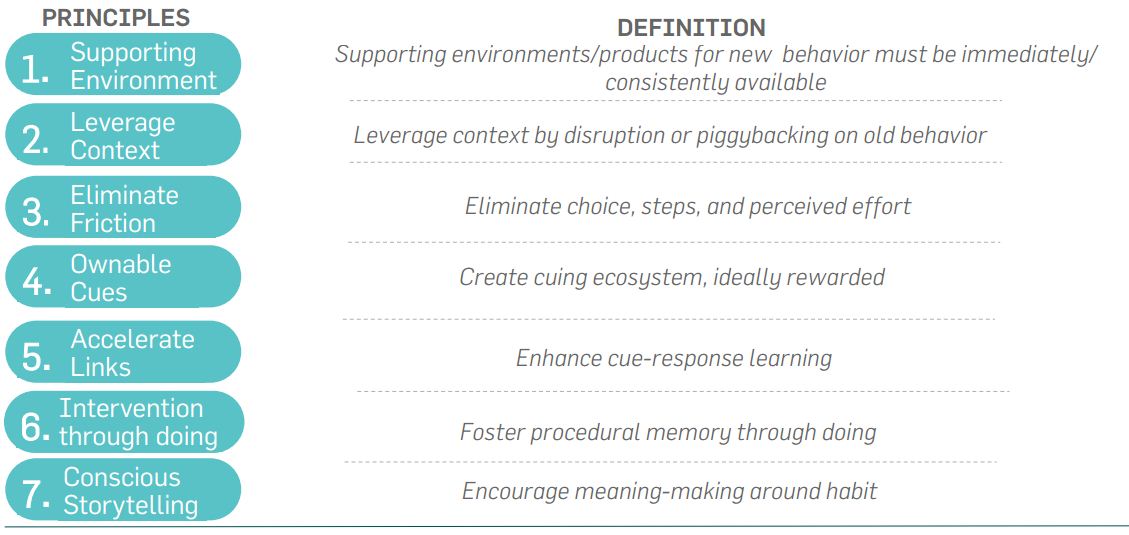WASHplus Weekly: The WASHplus Weekly highlights latest research and resources on topics such as Water, Sanitation, Hygiene, Household Air Pollution, Clean Cooking, Innovation, Nutrition, Food Safety, WASH in Schools, WASH Integration, and more.
2016
Issue 224 July 8, 2016 Focus on WASHplus Project Publications
Issue 223 May 25, 2016 Focus on Menstrual Hygiene
Issue 222 April 5 2016 Focus on the State of Handwashing
Issue 221 March 21 2016 Focus on Water Quality, Supply, and Livelihoods
Issue 220 March 4 2016 Focus on WASH and Nutrition
Issue 219 Feb. 19 2016 Focus on Sustainability, Accountability, and Governance
Issue 218 Feb. 5 2016 Focus on Behavior Change and WASH
Issue 217 Jan. 22 2016 Q&A on Investments in Cookstoves with Jörg Peters, RWI
Issue 216 Jan. 8 2016 Q&A with Adam Creighton
2015
Issue 215 Dec. 18 2015 Focus on Water Quality
Issue 215 Dec. 7 2015 Focus on WASH in Schools
Issue 213 Nov. 6 2015 World Pneumonia Day 2015
Issue 212 Oct. 30 2015 Focus on Enabling Environments
Issue 211 Oct. 23 2015 Lessons Learned in Sanitation
Issue 209 Oct. 9 2015 Focus on Global Handwashing Day 2015
Issue 208 Sept. 25 2015 Focus on Water & Agriculture
Issue 207 Sept. 18 2015 Focus on Handwashing Research
Issue 206 Sept. 11 2015 Focus on Cookstoves for Displaced Populations
Issue 205 Sept. 4 2015 Focus on Neglected Tropical Diseases
Issue 204 August 28 2015 Focus on WASH & Innovation
Issue 203 August 21 2015 Focus on World Water Week 2015
Issue 202 August 14 2015 Focus on Community-Led Total Sanitation (CLTS)
Issue 201 August 7 2015 Focus on Animal Waste Management
Issue 200 July 31 2015 Focus on Wearables for WASH & Health
Issue 199 July 17 2015 Focus on WASH & Financing
Issue 198 July 10 2015 Focus on Waste Pickers
Issue 197 July 2 2015 Focus on WASH & Nutrition
Issue 196 June 26 2015 Management of Infant and Child Feces
Issue 195 June 19 2015 Role of Women in Clean Cooking
Issue 194 June 5 2015 WASH & HAP & Child Health
Issue 193 May 28 2015 Menstrual Hygiene Management
Issue 191 May 15 2015 Focus on WASH & Pastoralism
Issue 190 May 8 2015 Focus on Hygiene
Issue 189 May 1 2015 Focus on Desalination
Issue 188 April 24 2015 Behavior Change in the Clean Cooking Sector
Issue 187 April 17 2015 WASH and Enabling Environments
Issue 186 April 10 2015 WASH in Non-Household Settings, including Schools
Issue 185 April 3 2015 Focus on World Health Day 2015 – Food Safety
Issue 184 March 27 2015 Focus on Water Safety Plans (WSP)
Issue 183 March 20 2015 Focus on Microfinance
Issue 182 March 13 2015 Focus on Urban Wastewater
Issue 181 March 6 2015 Community-Led Total Sanitation
Issue 180 Feb 27 2015 Water Quality
Issue 179 Feb 20 2015 Focus on WASH & Nutrition
Issue 178 Feb 13 2015 Focus on Barriers to Improved Cookstove Adoption
Issue 177 Feb 6 2015 Focus on Rainwater Harvesting (RWH)
Issue 176 Jan 30 2015 Focus on Fecal Sludge Management (FSM)
Issue 175 Jan 23 2015 Focus on WASH & Zoonotic Diseases
Issue 174 Jan 16 2015 Focus on Handwashing Research
Issue 173 Jan 9 2015 Focus on Multiple-Use Water Services
2014
Issue 172 Dec 19 2014 Focus on Clean Cookstoves
Issue 171 Dec 12 2014 Focus on WASH & Nutrition
Issue 170 Dec 5 2014 Focus on WASH & Climate Change
Issue 169 Nov 26 2014 Focus on Monitoring, Evaluation, Resolution, and Learning (MERL)
Issue 169 Nov 14 2014 Focus on World Toilet Day 2014
Issue 168 Nov 7 2014 Focus on WASH in Public Facilities
Issue 167 Oct 31 2014 Focus on WASH and Ebola
Issue 166 Oct 24 2014 Focus on Clean Cookstoves
Issue 165 Oct 10 2014 Focus on Community-Led Total Sanitation (CLTS)
Issue 164 Oct 3 2014 World Habitat Day – Focus on Slums
Issue 163 Sept 26 2014 Focus on Sanitation as a Business
Issue 162 Sept 19 2014 Focus on WASH & Human Rights
Issue 161 Sept 12 2014 Focus on Rural Water Supply
Issue 160 Sept 5 2014 Focus on WASH & Nutrition
Issue 159 August 29 2014 Focus on Cookstoves Monitoring & Testing
Issue 158 August 22 2014 Focus on WASH and Monitoring
Issue 157 August 8 2014 Focus on Disease Outbreaks
Issue 156 August 1 2014 Focus on Hand Washing
Issue 155 July 25 2014 Focus on Clean Cooking in Nepal
Issue 154 July 18 2014 Focus on Gaming Applications for WASH
Issue 153 July 11 2014 Focus on Fecal Sludge Management
Issue 152 July 3 2014 Focus on WASH and Nutrition
Issue 151 June 27 2014 Focus on Violence and Gender in the WASH and
Issue 150 June 20 2014 Focus on Gender Mainstreaming and Clean Cookstoves
Issue 149 June 6 2014 Focus on Community-Led Total Sanitation (CLTS)
Issue 148 May 30 2014 Focus on the Future of Water
Issue 147 May 23 2014 Focus on Menstrual Hygiene Day
Issue 146 May 16 2014 Focus on Clean Cookstoves and Behavior Change
Issue 145 May 9 2014 Focus on Information and Communications Technology (ICT)
Issue 144 May 2 2014 Focus on Sanitation
Issue 143 April 25 2014 Focus on WASH and Nutrition=
Issue 142 April 18 2014 Focus on Sanitation and Water for All
Issue 141 April 11 2014 Focus on WASH and Maternal Health
Issue 140 April 4 2014 Focus on Child Feces Disposal
Issue 139 March 28 2014 Global Burden of Disease from Household Air Pollution
Issue 138 March 21 2014 Focus on World Water Day 2014
Issue 137 March 7 2014 Focus on Multiple-Use Water Services
Issue 136 February 28 2014 Focus on Learning from Failure
Issue 135 February 21 2014 Focus on WASH-Related Diseases
Issue 134 February 14 2014 Focus on WASH and Small Towns
Issue 133 February 7 2014 Focus on WASH and Design Thinking
Issue 132 January 31 2014 Focus on Handwashing
Issue 131 January 24 2014 Focus on WASH and Nutrition
Issue 130 January 17 2014 Focus on Sanitation Marketing
Issue 129 January 10 2014 Focus on Carbon Finance for Cookstoves
Issue 128 January 3 2014 Focus on Microfinance
2013
Issue 127 December 20 2013 Focus on Inclusive WASH
Issue 126 December 13 2013 Focus on Community-Led Total Sanitation
Issue 125 December 6 2013 Focus on ICS Adoption in Bangladesh
Issue 124 November 22 2013 Household Water Treatment & Safe Storage
Issue 123 November 15 2013 Focus on World Toilet Day 2013
Issue 122 November 8 2013 Focus on Self Supply
Issue 121 November 1 2013 Focus on the Health Impacts of WASH Interventions
Issue 120 October 11 2013 Focus on Hand Washing
Issue 119 October 4 2013 Focus on Cookstoves and Consumers
Issue 118 September 27 2013 Focus on Management of Health Care Waste
Issue 117 September 20 2013 Focus on WASH and Nutrition
Issue 116 September 13 2013 Focus on Rural Water Supply
Issue 115 September 6 2013 Focus on Monitoring & Evaluation of Cookstoves
Issue 114 August 30 2013 Focus on Water Cooperation
Issue 113 August 23 2013 Focus on WASH and Emergencies
Issue 112 August 16 2013 Focus on Sanitation Marketing
Issue 111 August 9 2013 Cholera Prevention and Control
Issue 110 August 2 2013 Household Energy and Climate Change
Issue 109 July 26 2013 Focus on Rural Water Supply and Sanitation
Issue 108 July 19 2013 Focus on Food Hygiene
Issue 107 July 12 2013 Focus on Menstrual Hygiene Management, 2nd Edition
Issue 106 July 3 2013 Focus on Behavior Change
Issue 105 June 28 2013 Focus on Sanitation for Preschool-Age Children
Issue 104 June 7 2013 Focus on Microfinance for Sanitation
Issue 103 May 31 2013 Focus on Cookstove Fuels
Issue 102 May 24 2013 Focus on WASH-Related Diseases
Issue 101 May 17 2013 Focus on Rainwater Harvesting
Issue 100 May 10 2013 Focus on Community-Led Total Sanitation
Issue 99 May 3 2013 Focus on Water and Food Security
Issue 98 April 26 2013 Cookstoves and the Environment
Issue 97 April 19 2013 A Hand Washing Update
Issue 96 April 12 2013 Focus on Financing WASH Services
Issue 95 April 5 2013 Focus on Urban Sanitation
Issue 94 March 29 2013 Focus on Health Impacts of Household Air Pollution
Issue 93 March 21 2013 Focus on World Water Day 2013
Issue 92 March 15 2013 Focus on WASH Sustainability
Issue 91 March 8 2013 Focus on Gender Issues
Issue 90 February 22 2013 Focus on Sanitation Marketing
Issue 89 February 15 2013 Focus on Household Water Treatment & Safe Storage (HWTS)
Issue 88 February 8 2013 Focus on Neglected Tropical Diseases
Issue 87 February 1 2013 Focus on Cookstove Stacking
Issue 86 January 25 2013 Focus on WASH and Maternal Health
Issue 85 January 18 2013 Focus on Post-2015 MDG Goals, Targets and Indicators
Issue 84 January 11 2013 Focus on WASH and Environmental Conservation
2012
Issue 83 December 21 2012 Focus on HAP and the Global Burden of Disease
Issue 82 December 14 2012 Focus on Community-Led Total Sanitation
Issue 81 December 7 2012 Focus on Water Kiosks
Issue 80 November 30 2012 Focus on Fecal Sludge Management
Issue 79 November 16 2012 Focus on World Toilet Day 2012
Issue 78 November 9 2012 Focus on World Pneumonia Day 2012
Issue 77 November 2 2012 Focus on Water Conflicts
Issue 76 October 26 2012 Focus on Climate Change
Issue 75 October 19 2012 Focus on Waste Pickers
Issue 74 October 12 2012 Global Handwashing Day
Issue 73 October 5 2012 Focus on Water Technologies
Issue 72 September 28 2012 Focus on Entrepreneurship in WASH and Household Energy
Issue 71 September 14 2012 Focus on Household Water Treatment & Safe Storage
Issue 70 September 7 2012 Focus on WASH and Child Survival
Issue 69 August 31 2012 Focus on Biogas for Cookstoves
Issue 68 August 24 2012 Focus on Multiple-Use Water Services
Issue 67 August 17 2012 Focus on Water and Food Security
Issue 66 August 10 2012 Focus on Cholera Prevention and Control
Issue 65 August 3 2012 Focus on Menstrual Hygiene Management
Issue 64 July 27 2012 Focus on Marketing Cookstoves
Issue 63 July 20 2012 Focus on HIV AIDS and WASH
Issue 62 July 13 2012 Focus on Soil-Transmitted Helminth Infections
Issue 61 July 6 2012 Focus on Community-Led Total Sanitation
Issue 60 June 29 2012 Focus on WASH in Emergencies
Issue 59 June 8 2012 Focus on Public-Private Partnerships
Issue 58 June 1 2012 Focus on WASH-Related Diseases
Issue 57 May 25 2012 Focus on the Integration of WASH and the Prevention of IAP
Issue 56 May 18 2012 Focus on Water Security
Issue 55 May 11 2012 An Update on Sludge Management
Issue 54 May 4 2012 Focus on Self Supply
Issue 53 April 27 2012 Focus on Cookstove Adoption
Issue 52 April 20 2012 Focus on Small-Scale WASH Service Providers
Issue 51 April 13 2012 A Hygiene Behavior Update
Issue 50 April 6 2012 Focus on the Informal Sector and Solid Waste Management
Issue 49 March 30 2012 Focus on Nanotechnology
Issue 48 March 23 2012 Focus on Urban Health
Issue 46 March 8 2012 Gender Considerations for WASH and IAP
Issue 45 March 2 2012 A Focus on Multiple-Use Water Services (MUS)
Issue 44 February 24 2012 A Focus on Adoption of WASH and IAP Interventions
Issue 43 February 17 2012 A Focus on Ecological Sanitation
Issue 42 February 10 2012 WASH and Neglected Tropical Diseases
Issue 41 February 3 2012 Year in Review, Household Water Treatment & Safe Storage
Issue 40 January 27 2012 Health Impacts of WASH and IAP Interventions from 2011
Issue 39 January 20 2012 Year in Review – 10 Key Studies on CLTS from 2011
Issue 37 January 6 2012 Focus on WASH and IAP Technologies
2011
Issue 36 December 16 2011 Focus on Financing Examples for WASH and IAP Interventions
Issue 35 December 9 2011 Focus on Water Safety Plans
Issue 34 December 2 2011 Focus on Rainwater Harvesting
Issue 33 November 18 2011 Focus on World Toilet Day and Communal Sanitation
Issue 32 November 11 2011 Focus on the Prevention of Pneumonia
Issue 31 November 4 2011 Focus on Water Point Mapping
Issue 30 October 28 2011 Focus on Menstrual Hygiene Management
Issue 29 October 21 2011 Focus on Carrying Water
Issue 28 October 14 2011 Focus on WASH and Climate Change
Issue 27 October 7 2011 Focus on Hand Washing
Issue 26 September 30 2011 Focus on WASH and Humanitarian Assistance
Issue 25 September 23 2011 Focus on Sanitation Marketing
Issue 24 September 9 2011 Focus on Reuse in Sanitation
Issue 23 September 2 2011 Focus on WASH for the Disabled
Issue 21 August 19 2011 Focus on Sludge Management
Issue 20 August 12 2011 Focus on Cholera Prevention and Control
Issue 19 August 5 2011 Focus on Indoor Air Quality (IAQ)
Issue 18 July 29 2011 Focus on Prevention and Treatment of Diarrhea
Issue 17 July 22 2011 Focus on Drinking Water Quality
Issue 16 July 15 2011 Focus on HIV AIDS and WASH
Issue 15 July 8 2011 Focus on Marketing Approaches
Issue 14 July 1 2011 Focus on Household Water Treatment and Safe Storage
Issue 13 June 24 2011 Focus on Hygiene Behavior
Issue 12 June 17 2011 Focus on Mobile Technologies
Issue 11 June 10 2011 Focus on Monitoring and Evaluation
Issue 11 June 3 2011 Focus on the Health Impacts of WASH Interventions
Issue 9 May 27 2011 Focus on Financing
Issue 8 May 20 2011 Focus on WASH and Urban Issues
Issue 8 May 13 2011 Focus on Community-Led Total Sanitation
Issue 7 May 6 2011 Focus on Gender & WASH
Issue 6 April 29 2011 Focus on the Integration of IAQ WASH and Schools
Issue 5 April 22, 2011 Focus on the Integration of WASH and IAQ
Issue 4 April 15, 2011 Focus on Household Water Treatment and Safe Storage
Issue 3 April 8, 2011 Focus on Handwashing
Issue 2 April 1 2011 Focus on Sanitation
Issue 1 March 1 2011 Welcome to Washplus Updates



 A mother is interviewed as part of the model moms contest.WASHplus implementing partner in Benin ABMS/PSI conducted an informal assessment via simple questionnaire and observations of any hygiene behavior changes in the two peri-urban pilot neighborhoods of Cotonou. This allowed outreach workers to observe improvements in hygiene practices the project is advocating, such as handwashing and point-of-use water treatment, and to select candidates for “Model Mother.” Of the 300 mothers assessed, 123 had perfect scores on a scale of one to 10, with 72 others close behind. Winners will be announced soon with much fanfare to continue to motivate others.
A mother is interviewed as part of the model moms contest.WASHplus implementing partner in Benin ABMS/PSI conducted an informal assessment via simple questionnaire and observations of any hygiene behavior changes in the two peri-urban pilot neighborhoods of Cotonou. This allowed outreach workers to observe improvements in hygiene practices the project is advocating, such as handwashing and point-of-use water treatment, and to select candidates for “Model Mother.” Of the 300 mothers assessed, 123 had perfect scores on a scale of one to 10, with 72 others close behind. Winners will be announced soon with much fanfare to continue to motivate others.







